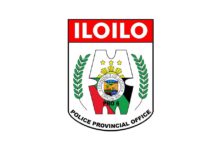ILOILO City – Disclosure of the real identity of all social media users, more legislations, and self-regulations were just among the suggested solutions to curb the spread of disinformation in the internet and social media platforms.
Antonio Carpio, former associate justice of the Supreme Court, said social media users can say what they want on their comments or posts but they must take responsibility for it and there must be disclosure of identity.
“There must be orderliness, we must know who you are. It is important to know who you are because anybody can now invent a story and released it in the internet. We are not curtailing you to say what you want to say so there is no violation of freedom of speech,” said Carpio in a press conference.
Carpio was one of the keynote speakers during the 14th General Assembly of the Council of Asian Liberals and Democrats (CALD) held at the Iloilo Convention Center on Saturday, Nov. 12, with the theme, “Building a Democratic Coalition Against Disinformation.”
The conference, organized by CALD, was in cooperation with the Liberal Party (LP) of the Philippines and the Center for Liberalism and Democracy (CLD), with the support of the Friedrich Naumann Foundation for Freedom (FNF).
Carpio emphasized that in every malicious libel posted online, there must a legal remedy.
“Because if you allow, let’s say Facebook, to enter anonymous users with crazy names to attract you and to libel you and under US Law you cannot sue Facebook because there is a safe-harbour clause provision – it is very reasonable for Facebook to reveal the name of the user because you must have a remedy, you’ve been harmed by malicious comments, otherwise what happens now? People who do not have a remedy are injured, their reputation is tarnished and they resort to violence, We cannot allow that,” Carpio explained.
For former senator Kiko Pangilinan who chairs the CALD and the LP, there are a lot of possible regulations that can be put in place to curb the spread of disinformation.
Pangilinan believes the government can do something even without legislation. For instance, it should be the first to police its ranks.
He said government employees, for example, should not be involved in disinformation and the spread of fake news.
He added the Civil Service Commission can issue a circular laying down the parameters of what government employees can and cannot do when it comes to disinformation.
As to legislation, Pangilinan said the SIM Card registration is now a law but there is still a need to be vigilant and careful because it is a double-edge sword which can be used to invade privacy.
Apart from legislation, he also pushes for self-regulation, for instance, among advertising agencies organization and business sector.
Advertising agencies, Pangilinan said, do have a Code of Ethics in terms of what are the parameters within which they would operate in terms of advertising.
However, when it comes to digital advertising, there is none.
“That is another area wherein I think advertising agency executives should start putting together, crafting on the aspect of digital advertising,” said Pangilinan.
The former senator added that larger business organizations in the country must also come in.
In December 2021, several business organizations also took on disinformation and they came up with a statement on their concern about disinformation.
“Why is it important? Because it’s these business corporations that provide digital advertising money, that are now the source of monetization of YouTube sites that are now coming with ads. They come out in these notorious fake news sites. So business should also come in and say, ‘do we want to be associated with sites spreading disinformation?’ So even the business sector must come in,” Pangilinan emphasized.
THE CALL OF OUR TIMES IS CLEAR
Former Ilonggo senator and former CALD chairperson Franklin Drilon, meanwhile, stressed that disinformation not only affects politics but society at large.
He cited that because of false information, the shared norms, values and understandings, which are necessary for the effective functioning of every society, have been put into question, even discarded.
He added that the societal institutions that used to safeguard moral standards and professional integrity, such as established religions and traditional media, have now become the subjects of distrust and hate.
“In a world of digital disinformation, everyone has become vulnerable – to being a target and unwitting purveyor of disinformation/misinformation to data hacking and harvesting, to cyber-attacks and cyber-bullying, even surveillance and censorship,” Drilon lamented during his keynote speech.
Given the wide-ranging scope of the problem, Drilon believes that one of the possible solutions is to mobilize all stakeholders – the international community, government institutions, political parties, civil society organizations, the media, tech and social media companies, educational institutions, among others.
“We recognize that democratic forces from all sectors must come together to learn from each other and formulate concrete and effective solutions to the issue of disinformation. If the autocrats and populists can unite and support each other, we too can build and sustain coalitions that defend democracy and our fundamental freedoms. The call of our times is clear. We are not only fighting against disinformation. We are fighting to preserve our democratic way of life – our freedoms, our rights, our dignity as human beings. My wish is that this democratic gathering in Iloilo can provide us with the necessary knowledge, skills and strategies to win this fight for democracy,” he added./PN





